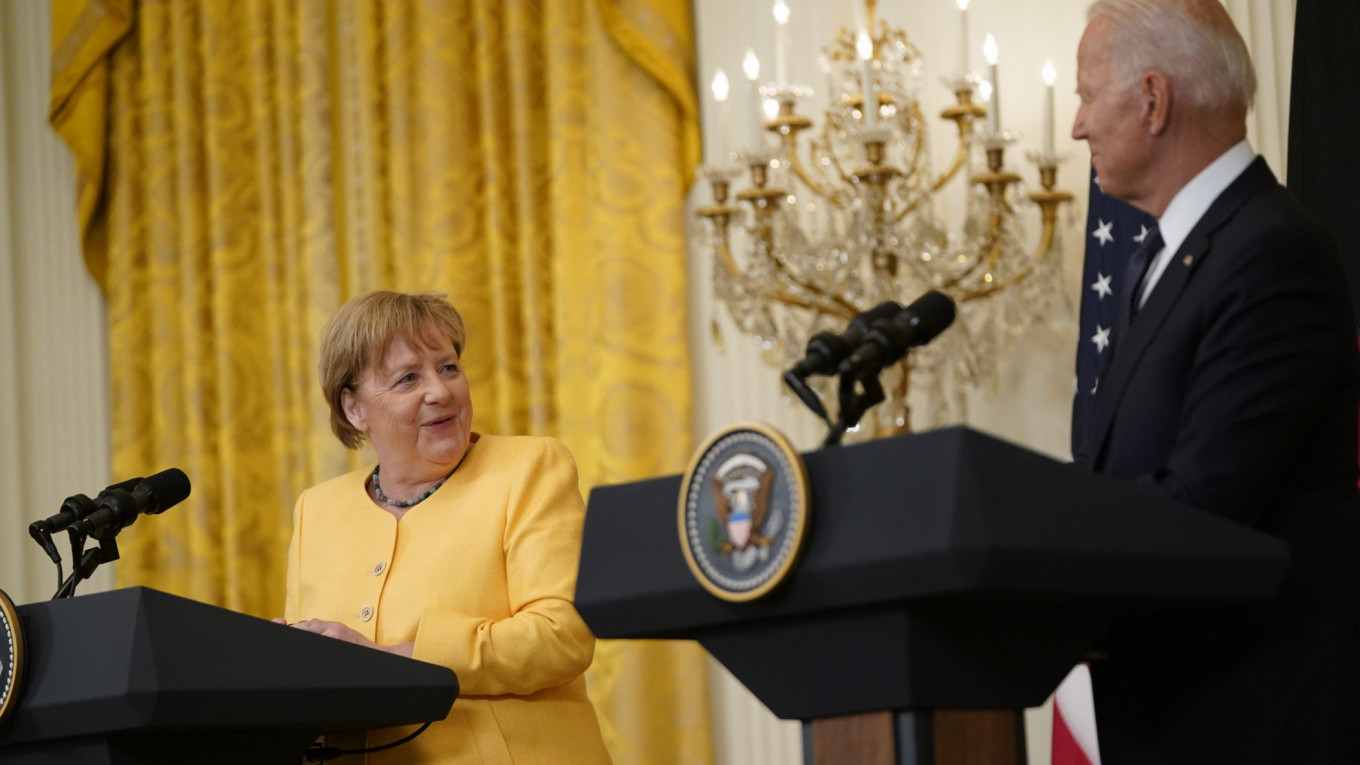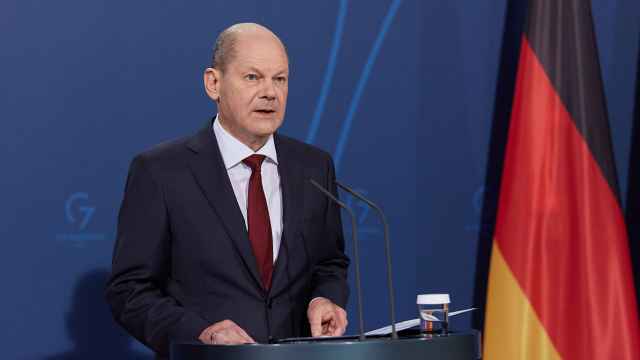The United States said Wednesday it had reached an agreement with Germany on the controversial Nord Stream 2 pipeline that would threaten Russia with sanctions and seek to extend the transit of gas through Ukraine.
President Joe Biden’s Republican rivals swiftly denounced the agreement as emboldening President Vladimir Putin but the administration argued that it was trying to secure a favorable outcome from a pipeline that is nearly complete.
"This is a bad situation and a bad pipeline but we need to help protect Ukraine and I feel that we have made some significant steps in that direction," Victoria Nuland, the undersecretary of state for political affairs, said as she unveiled details before a Senate hearing.
Biden, who welcomed Chancellor Angela Merkel last week, has waived most sanctions on Nord Stream required by Congress, arguing that it was too late to stop it and it was better to work with Germany.
The pipeline through the Baltic Sea has been vigorously opposed by Ukraine, which has been battling pro-Moscow separatists since 2014 and sees the transit of Russian gas through its territory as vital leverage.
"Germany has committed in this agreement with us that should Russia attempt to use energy as a weapon or commit further aggressive acts against Ukraine, Germany will take actions at the national level and press for effective measures at the European level including sanctions to limit Russian export capabilities to Europe in the energy sector," Nuland said.
Nuland said that Germany had also agreed to work alongside the United States to press Russia to extend by 10 years a transit agreement through Ukraine that is due to expire at the end of 2024.
Reassuring Ukraine
In a show of firm support for Kyiv, the White House announced Wednesday that Biden will receive Ukrainian President Volodymyr Zelenskiy at the White House on Aug. 30.
Another top State Department official, Derek Chollet, headed this week both to Ukraine and Poland to discuss the agreement on the pipeline.
Nuland said that the agreement will also have "concrete" financial figures on helping Ukraine diversify energy supplies.
Germany, which had intense friction with former president Donald Trump, has hailed the approach of Biden as a revitalization of the alliance.
Republicans swiftly criticized the agreement, saying it betrayed Ukraine and would embolden Putin.
Republican Senator Ted Cruz has cited concerns about Nord Stream as he holds up confirmations of key Biden appointees to diplomatic posts.
"We always knew Biden was in bed with Putin, now they're spooning,” Cruz said.
Biden has also faced criticism from Democrats on Nord Stream 2 but his defenders call the Republican attacks farcical, noting that Trump unabashedly praised Putin and showed distaste for Ukraine, with a telephone call in which he tried to strong-arm Zelenskiy triggering his first impeachment.
Nuland, a former career diplomat famous for rallying behind pro-Western protesters in Ukraine in 2013, bluntly replied to Cruz that the Trump administration, which took over in 2017, bore responsibility.
"I believe that we were in 2016 on our way to stopping the pipeline," she said. "When the Biden administration came into office four years later, that pipeline was 90%-plus complete."
A Message from The Moscow Times:
Dear readers,
We are facing unprecedented challenges. Russia's Prosecutor General's Office has designated The Moscow Times as an "undesirable" organization, criminalizing our work and putting our staff at risk of prosecution. This follows our earlier unjust labeling as a "foreign agent."
These actions are direct attempts to silence independent journalism in Russia. The authorities claim our work "discredits the decisions of the Russian leadership." We see things differently: we strive to provide accurate, unbiased reporting on Russia.
We, the journalists of The Moscow Times, refuse to be silenced. But to continue our work, we need your help.
Your support, no matter how small, makes a world of difference. If you can, please support us monthly starting from just $2. It's quick to set up, and every contribution makes a significant impact.
By supporting The Moscow Times, you're defending open, independent journalism in the face of repression. Thank you for standing with us.
Remind me later.






